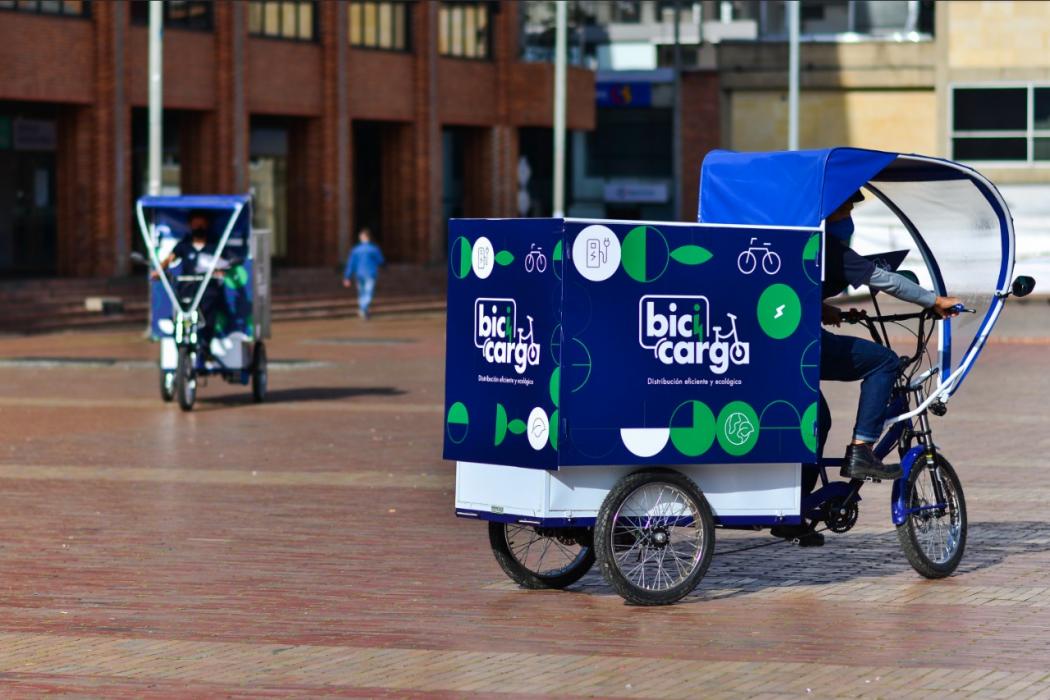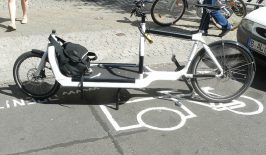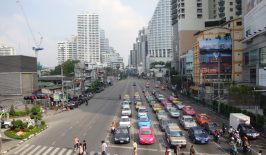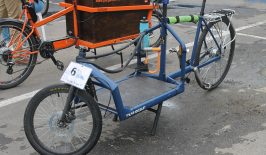Air pollution in the Colmbian capital of Bogotá has long been a critical issue. According to a World Bank study, air pollution kills around 15,000 Colombians a year, with one in twenty deaths in the capital being attributed to poor air conditions. In built-up urban areas, the majority of this pollution comes from motor vehicles, including large fleets of delivery trucks. Furthermore, not only do these vehicles cause environmental and health concerns, but they also diminish the quality of life for Bogotans, including noise pollution and traffic jams.
Now the Bogotá government – currently led by the Green Alliance Party – is trialling a new system to make deliveries to the city cleaner, quicker and safer by using electric bikes.
The city is now using 15 BiciCargo bikes, each with a cargo capacity of 1 cubic metre, to replace some of the final mile deliveries into the city. The trial is exploring two potential ways for the system to work. Either bikes can collect goods directly from local private warehouses for distribution in the city, or they can load cargo from a cross-docking point in the city. Here, larger trucks can off load their goods, which are then transferred to the bikes.
Although the bikes only have one-eighth of the carrying capacity of the average truck, their size and nature means they can make deliveries much faster. They can weave through traffic, use cycle lanes and do not need to spend time looking for a parking spot. This makes them especially useful for the many smaller convenience stores used everyday by locals and could potentially save time and money.
According to the Bogotá City Council, the use of such bikes could cut up to 16 metric tons of car emissions a day. Secretary of Mobility of Bogotá, Nicolás Estupiñán Alvarado stated:
“In this pilot, in which 15 companies will participate, of which 10 are cargo generators and 5 logistics operators, we are going to see reductions in pollution, congestion and road accidents. For us it is very important to have the support of the business sector, not only from Bogotá, but from the country, in the implementation of these new technologies that are serving in different parts of the world to have a more efficient and sustainable last mile.”
In an interview with DW, BiciCargo delivery man Daniel Sanchez also suggested the new bikes offered him immediate benefits. Compared to working as a standard delivery driver, his work day is now one third shorter and he earns more money.
The project is currently only in a trial phase and is expected to run until June 2021, however the team are eager to test the system in a large city and expand it further. Originally, the BiciCargo platform was developed by a start up in the city of Medellín and changing it to Bogotá does present some challenges. Although Medellín is a large city by most standards – with 2.5 million inhabitants – it is much less densely populated than Bogotá with its 7 million inhabitants. Furthermore, Medellín’s commercial district is localised in one area, while Bogotá’s is more dispersed. This presents some issues for the maintenance of the bikes as well as their battery life.
Colombia is also not the only country to see the attractiveness of zero-emission deliveries. Previously RESET has covered other projects in European nations to introduce similar solutions.
Pollution Beyond the Cities
However, air pollution from vehicles is only one part of Colombia’s air pollution woes, and only accounts for half of deaths attributed to poor air quality. The remainder actually occurs in Colombia’s rural communities where indoor air pollution is the primary concern and can sometimes be ten times the level of urban areas. The use of wood or solid fuel burners for cooking and heating – often in poorly ventilated makeshift homes – is the main culprit and is responsible for 17 percent of rural deaths a year.
Improving on this front also requires a focus on developing these informal communities, educating locals on the ill-effects of solid-fuel burning and introducing new, more efficient and cleaner methods of cooking and heating.






